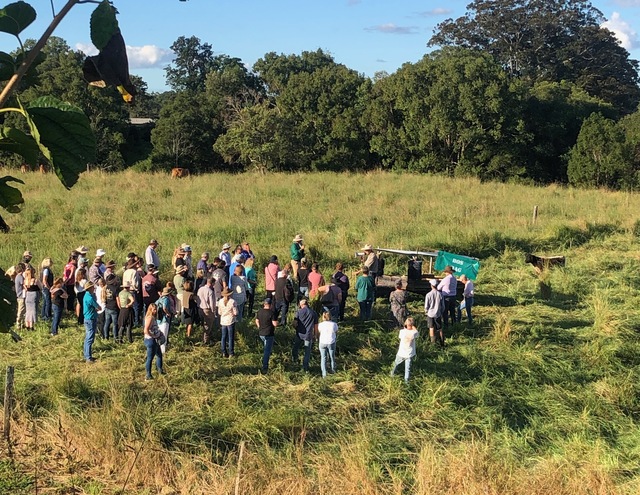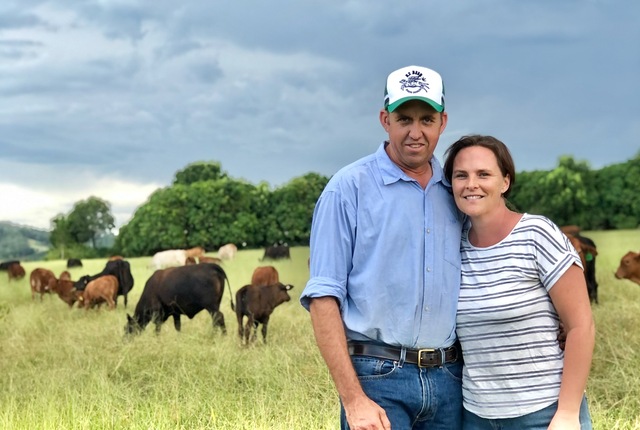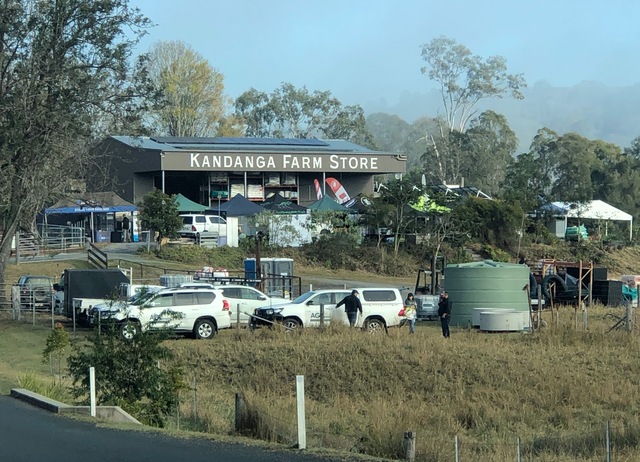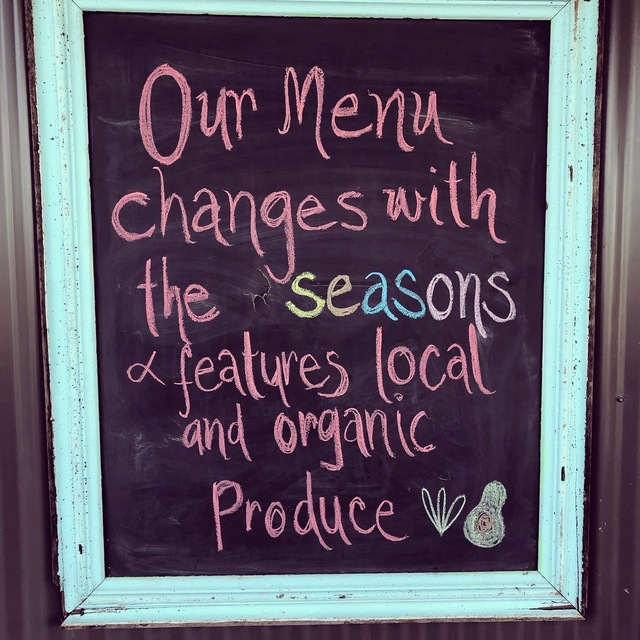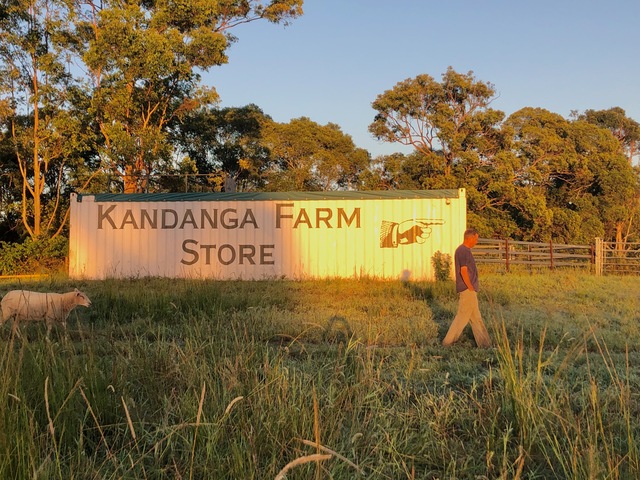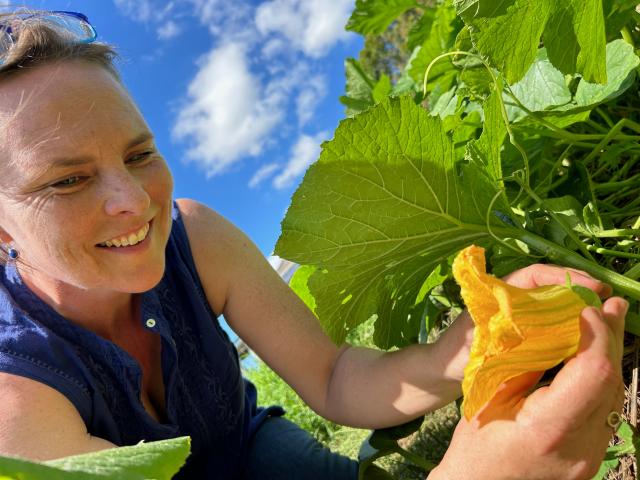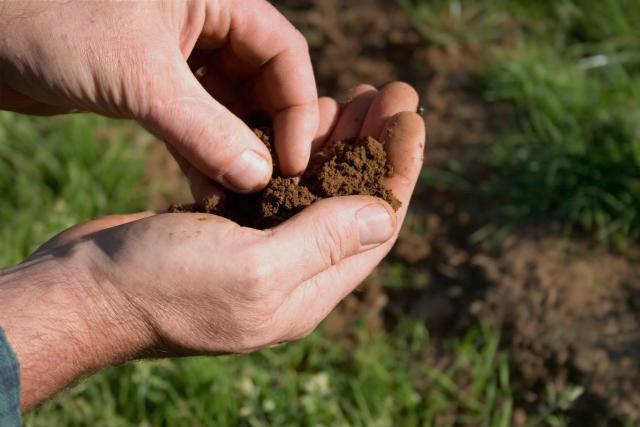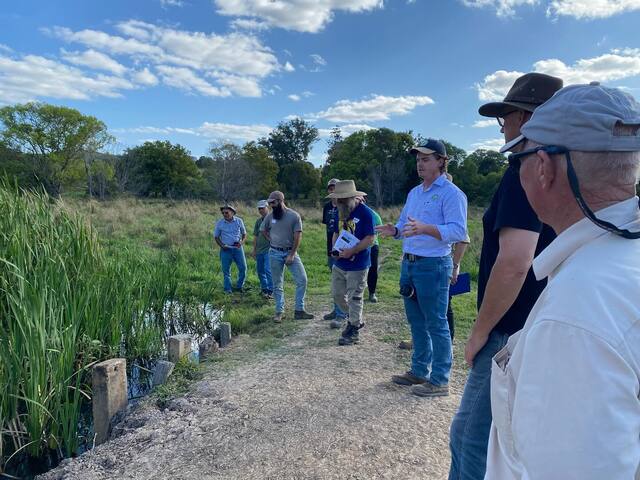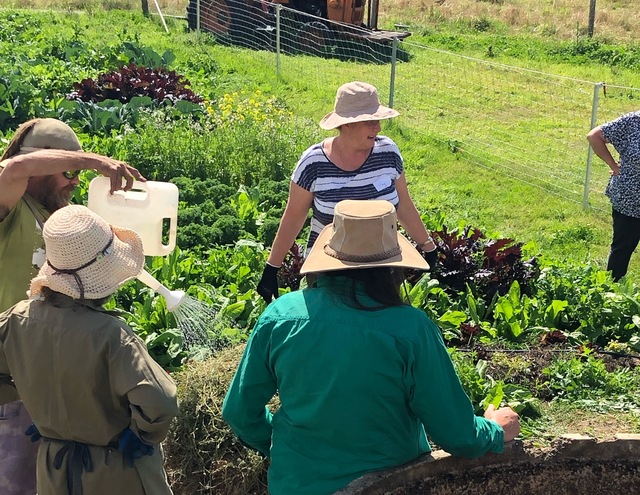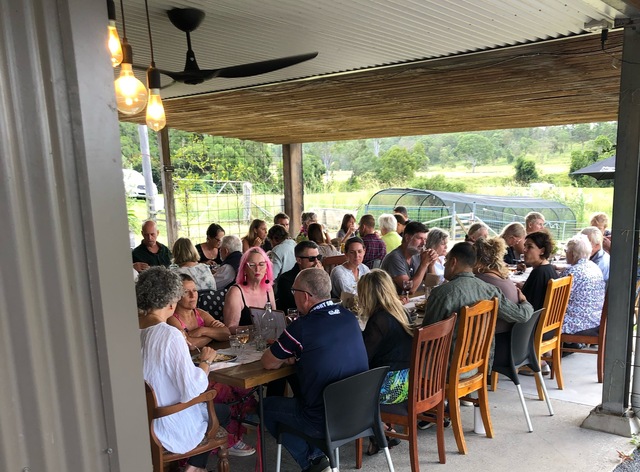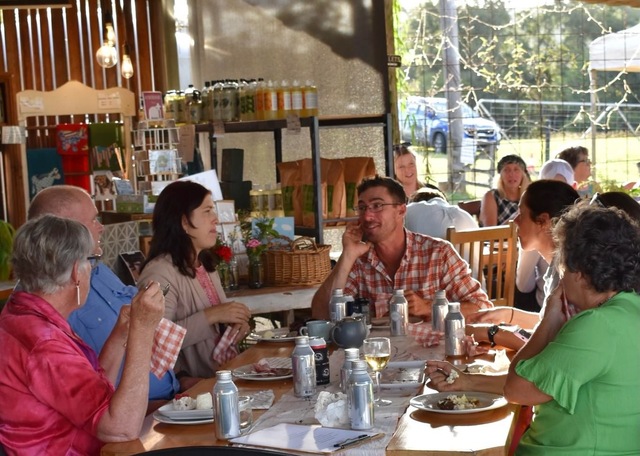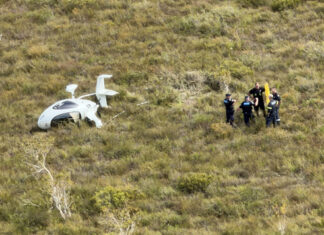Farmers and gardeners in the southern states say they appreciate having four distinct seasons as compared to Queensland … the trouble is they can have four seasons in one day.
On the other hand you can virtually set your clock by Queensland’s weather pattern … the first thunderstorms at the start of September, strong surf at the end of January, rain at Easter while camping, and frosts in the valleys the first week of June.
Farming has long based its success on judging when to plant and when to harvest.
Records of weather cycles are helpful if they can be taken over many years. Yet in many cases it comes down to intuition and knowledge – a new moon or full moon are believed to influence an increase in soil moisture availability, enhancing seed germination and root hydration.
Farming, as we know, is basically a seven-day-a-week occupation for 52 weeks of a year. You are immersed in nature and must take each day as it comes … rain, hail, wind or shine.
As a reflection of the different growing conditions, the Kandanga Farm Store is holding a Four Seasons series of educational mornings throughout the year – autumn, winter, spring and summer.
Farm Store’s Amber Scott said they are low-key workshops are aimed at sharing the practicalities of actually running an organic, regenerative food production operation as opposed to high-chemical use.
All the theory is great but this “nuts and bolts” series hosted by those actually in the business and inviting in industry experts in the area of soil health, animal health, organic production, syntropics agroforestry, holistic management and more will start on Saturday, 22 February, with other events in the series held throughout the year.
They follow the successful Burnett Mary Regional Group’s Regenerative Agricultural forums at Gayndah and Maryborough. They saw more than 300 at Gayndah and more than 200 at Maryborough.
“People can be reactive when it comes to farming,” Amber told me, as we enjoyed a cold fruit juice on one of the fading days of summer.
“They will experience a tick outbreak or a fly outbreak with their cattle and often ask how to fix it rather than be pro-active. How do I handle this problem?
“When you decide to go down the organic/chemical-free route you have to be pro-active. When you are organic you have to think what’s coming and what do I do now before it actually happens – and becomes an issue.
“What we are going to do this year is a series of four workshops for each season, each of three hours duration.
“They are called season starter sessions, as at the start of each season we’re going to take people through this proactive planning.
“What do I do from a livestock health point of view? What do I do from my pasture management point of view? What do I do in the home veggie garden so I can grow produce for myself?
“The series will offer all of that and then culminate with a lunch using freshly-harvested seasonal produce prepared by chef Matt Golinski.
“Matt will also talk about a recipe he’s using, something that’s coming out of the garden right at the time.
“That will be for the workshop participants, but because Matt will then cook for more than the workshop the lunch will be open to the public as well.”
The four Friday or Saturday morning sessions are 22 February, 9 May, 23 August and 8 November.
The summer session will be interesting, Amber said, as they will be concentrating on all of the things that happened with the explosion of growth from heat and moisture.
“A lot of people start freaking out – just like they freak out in the middle of winter that there’s not enough growth.
“We know it’s going to happen, so it’s a matter of working out how to be proactive – to maximise our growth and minimise the fact that we might not have as much feed in winter.
“It’s a matter of looking at what do you do before summer, so that you’re not going to get impacted by all those things – buffalo flies and ticks for instance.”
The concept of being pro-active rather than reactive makes a tremendous amount of sense, even when there’s so much growth in the region at the moment.
The advice from the Department of Primary Industry representative is to plan for the next drought when you’re in flood – that’s when you start. How do you maximise water? How do you minimise loss of soil? All of those things will be spoken about.
“It’s a full circle,” Amber said. “The sessions will be about what you should be planting but also what you’re harvesting, and that’s what Matt will handle.
“In the first session we will be planning the garden here at the farm store, so that in the second session we should be pulling produce out of the garden to cook. That will be such an exciting day.”
Matt Golinski will also doing something at Kandanga in mid-June – a winter solstice festival.
“We don’t even know what that’s going to look like yet,” Amber said, “but he’s going to cook for it, so that’s in the lead-up to the winter solstice which is the following weekend. It will be a lot of fun.
“On Friday, 28 March, we’ve got Dhom from Dhom’s Kitchen coming on the new moon. That’s a Friday night and we’re going to have our old new moon dinner.
“This will be a set menu and Dhom will be using using local produce and traditional Thai cooking which suits our climate.”
In late April and again in September, Dan Kittredge of The Bionutrient Food Association will be conducting two-day workshops at Kandanga.
It’s all about nutrient density and how to grow nutrient-dense food.
Since founding the institute in 2010 Dan has been teaching his concepts and practices as an organic farmer across the world.
He will be among the guest speakers at Agvention field days at Kandanga Farm Store on September 5.
Dan has a singular, simplistic vision: “Increasing quality in the food supply.”
The Bionutrient Institute was launched to demonstrate the connections between nutrient density and soil, plant and human health.
It’s a four-day course of two days in April and two days in September.
Matt Golinski will be presenting the morning tea and lunch, as well as a dinner that night that will be open to everyone, not just participants.
The workshops will appeal to farmers, to people who care about where their food comes from, as well as medical people.
As a bright start to GourMay – the month-long celebration of food in the Mary Valley – chef Peter Wolfe will be presenting a long lunch, utilising local produce.
The Four Seasons workshop on 9 May will see Peter hosting the session from 10am-1pm session, and there will be a Matt Golinski lunch afterwards that’s open to the public.
Agvention25 on Friday, 5 September, sees the continuation of this highly popular regenerative farming field day.
The self-funded event provides a mix of experiences from Farm-to-Fork for those new and old in the regen world.
Each field day has proven unforgettable and there are some great speakers lined up, farming demonstrations, and the food.
There will be a farm walk, a lunch and plenty of time to have discussions with the speakers.
It will be a year jam-packed with opportunities to make change at Kandanga Farm Store.
“We will be driving home the message that the food-based events we’re doing are all about local produce,” Amber said, “… all about engaging with where your food comes from, who’s produced it, and seasonal eating.
“It’s that simple yet effective way of combining food, information and conversation that we are getting back to.”
FOUR SEASONS WORKSHOPS AND LUNCHES
Topics covered each session include:
The fundamentals of Regenerative Agriculture – practically;
Seasonal activities for land management to build soil health;
Seasonal activities for animal management – integrating livestock, nutrition, marketing, breeding;
What to plant and jobs to do in your home vege garden;
Working with nature rather than fighting;
With guest speakers and drawing a decade-plus of experience producing certified organic beef while still regenerating the landscape in the high-parasite, sub-tropical Mary Valley region.
DATES FOR 2025
Saturday, February 22, 10am-1pm Preparing for autumn;
Friday, 9 May, 10am-1pm Preparing for winter;
Saturday, 23 August, 10am-1pm Preparing for spring;
Saturday, 8 November, 10am-1pm Preparing for summer.

